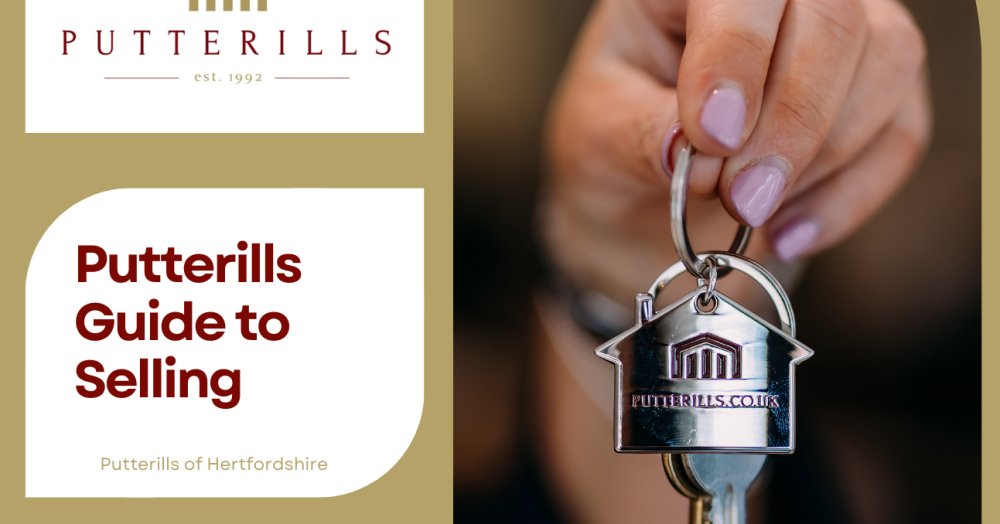Navigating the complexities of selling a property can be challenging, but with the right guidance, it can also be a rewarding journey. This guide from Putterills offers detailed steps and expert advice to streamline the process of selling your home in Hertfordshire.
1. Assess Your Financial Position
Before starting the process of selling your property, it is important to assess your financial situation. You should take into account any early repayment charges on your current mortgage and determine whether it is feasible to transfer it to a new property. If you plan on upgrading, you should research borrowing limits and the best mortgage deals available. Additionally, don't forget to factor in the cost of stamp duty and other expenses related to selling your property. At this point, it may be helpful to seek advice from an independent mortgage broker to better understand your financial readiness.
2. Accurate Property Valuation
To set the correct asking price for your property, it's important to research the local market trends and invite reputable local estate agents for valuation. However, be cautious of overvaluations and try to aim for a price that is competitive yet realistic. Don't forget to ask your agent about the strategy they have in place to ensure you market your property at the right price.
3. Enhance Your Property's Appeal
Having a good presentation is crucial when it comes to selling a property. In order to make your property more attractive to potential buyers, make sure it is clean, decluttered, and well-maintained. You might also want to consider making small home improvements, such as applying a fresh coat of paint or updating fixtures. If there are any significant issues with your property, it may be worth commissioning a pre-sale house survey to help you decide whether to address them or adjust your asking price accordingly.
4. Setting the Right Price
Your asking price can greatly impact your sale's success. Consider recent local sale prices and average estate agent valuations. Be wary of using terms like "offers in excess of" as they can negatively affect buyers' interest.
5. Selecting an Estate Agent
When selecting a real estate agent, it is important to compare their fees, services, and contract terms. Make sure that the chosen agent's approach aligns with your selling strategy and expectations. Also, keep in mind the total cost of moving. While an agent with a low fee might seem like a good deal, if they are unable to negotiate a strong selling price, you may end up losing more money and the opportunity to move to a new home. So, it's essential to choose an agent that can offer a balance of affordability and quality service.
6. Marketing Your Property
It is essential to collaborate with your estate agent to create marketing materials that are effective, including professional photographs, a detailed floor plan, and an engaging property description. Moreover, it is important to ensure that your agent has a structured marketing plan beyond just advertising on property portals like Rightmove.
7. Organising Necessary Paperwork
Gather all relevant documents early in the process. This includes title deeds, energy performance certificates, and any relevant building or planning permissions. Being organised can expedite the selling process.
8. Managing Viewings
It is advisable to allow your estate agent to handle property viewings. Prepare your property for each viewing by highlighting its best features and potential.
9. Legal Preparation: Choosing a Conveyancer
It is important to engage a solicitor or conveyancer early in the process to ensure a seamless transfer of property ownership and speed up the sale. They can also help gather any necessary paperwork in preparation.
10. Reassessing if Challenges Arise
If your property is not selling, consult with your estate agent for insights. Consider adjusting the price or changing marketing strategies. A good agent should be able to assist and provide regular feedback to help with this.
11. Navigating Offers
Evaluate all offers with your estate agent, considering not just the amount but the buyer's circumstances. Prioritise buyers with fewer chain dependencies and those ready to proceed quickly.
13. Active House Hunting
Once your property is under offer, intensify your search for a new home. Being in this position strengthens your standing in negotiations for your next property.
14. Maintaining Momentum
Communicate regularly with all parties involved. Clarify what's included in the sale and agree on dates for exchange and completion.
15. Final Steps: Exchange and Completion
The exchange of contracts solidifies the sale, requiring a deposit from the buyer. Ensure you have adequate insurance coverage from this point. On completion day, finalise all moving arrangements and hand over the keys to your property.

